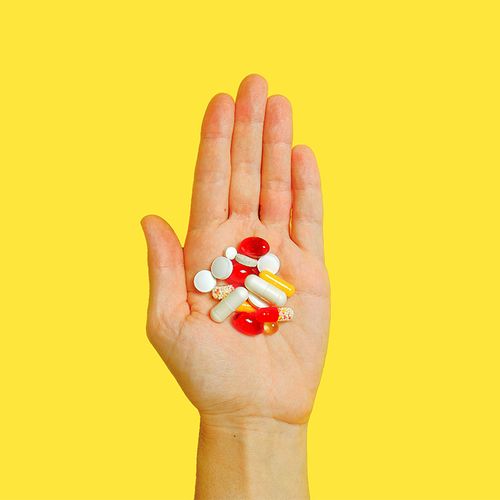Until recently, the dietary supplement co-enzyme Q10 (CoQ10) was recommended for people who wanted to avoid the side effects of cholesterol-lowering statin drugs, including muscle pain and weakness.
Now: Researchers are discovering that CoQ10 may confer a variety of other health benefits that are unrelated to statin use.
Peter H. Langsjoen, MD, a foremost CoQ10 expert, spoke recently about the latest developments in this research..."
What Is CoQ10?
CoQ10 is a vitamin-like substance that plays a key role in the production of energy in every cell in the body. Discovered in 1957, the substance is naturally present in such foods as organ meats (including cow's liver and kidney), and, in smaller amounts, in beef, sardines, mackerel and peanuts. Because CoQ10 appeared to be everywhere in the body-or "ubiquitous"-it was fittingly dubbed ubiquinone.
Without adequate levels of this substance, the body's organs and systems, including the immune system and nervous system, will not function optimally.
Unexpected Health Benefits
Increasing scientific evidence now offers support for the use of CoQ10 supplements to help treat…
*Dr. Langsjoen has no financial interest in any company that manufactures or sells CoQ10 supplements.
- Heart disease. CoQ10 is involved in creating 90% of cellular energy in the heart.
Research has shown that people with heart failure (inadequate pumping action of the heart) have lower blood levels of CoQ10, on average, than people without heart failure-and the lower the CoQ10 level, the worse the problem.
Recent research published in the journal Biofactors showed that the ejection fraction (the amount of blood pumped with each heartbeat) in heart failure patients who took CoQ10 supplements rose from an average of 22% to an average of 39% after six to 12 months.
Important: Because statin medications deplete the body's supply of CoQ10, ask your doctor about adding CoQ10 supplements to help protect the heart and counteract statin-related side effects) to your regimen if you take one of these drugs.
- High blood pressure. CoQ10 can also help improve high blood pressure (hypertension). Studies have shown that about half of people using one or more drugs for high blood pressure can stop taking at least some of their medications after taking CoQ10 supplements for about five months.
- Cholesterol. CoQ10 also acts as a powerful antioxidant. It is transported in the blood (along with cholesterol and other fat-soluble nutrients) and helps protect cholesterol from damaging oxidation, which plays a role in atherosclerosis (fatty buildup in the arteries).
- Fatigue. Because CoQ10 is part of the body's energy-producing processes, it is particularly valuable in reducing fatigue-even among people with severe fatigue, including that caused by such conditions as chronic fatigue syndrome.
- Migraines. In one study, 32 people who took CoQ10 supplements for three months had only half their usual number of migraines.
- Neurological disorders. Some of the most promising recent research involves the ability of CoQ10 to slow the progression of degenerative neurological disorders, including Parkinson's disease, Alzheimer's disease and Huntington's disease (a genetic disorder).
How To Use CoQ10 Safely
People who eat organ meats at least once or twice weekly usually have healthy CoQ10 levels. But other adults can improve their blood levels of CoQ10 by taking supplements. Work with your doctor to find an optimal dose.
For best absorption, do not take more than 180 milligrams (mg) at one time. CoQ10 is fat-soluble (dissolves in fat), so it is best to take the supplement with meals that contain at least a little bit of fat any type).
In some people, CoQ10 may cause temporary side effects, such as nausea and other gastrointestinal disorders...dizziness...insomnia...or headache. However, these side effects are rare. If you experience side effects, try a different CoQ10 formulation.
Caution: One case study suggested that CoQ10 may act like vitamin K, lessening the blood-thinning effect of warfarin (Coumadin). But a controlled trial subsequently found no such effects.
Nevertheless, people taking warfarin or any other blood-thinning medication should consult a doctor before taking a CoQ10 supplement. After a few weeks of taking CoQ10, anyone who uses a blood thinner should have his/her prothrombin time (a measure of clotting ability) checked.
Also important: Because CoQ10 may cause your blood pressure and/or blood sugar (glucose) level to gradually improve your doctor may want to adjust the dosage of any medications you may be taking to control elevations of either.
Finding The Best Product
One reliable producer of CoQ10 is the Japanese company Kaneka, which sells CoQ10 in the US under many different brand names, including Healthy Origins (888-228-6650, www.healthy origins.com) and Jarrow Formulas, available through Pro Vitaminas (800-510-6444, www. provitaminas.com). Kaneka uses a yeast fermentation process with 99.9% pure natural CoQ10.
In addition to CoQ10 supplements, you may see products labeled 'ubiquinol." Ubiquinol is a more bioavailable (absorbable) and more expensive—form of CoQ10. However, if you take CoQ10, your body will naturally convert it to ubiquinol. While most healthy adults readily absorb CoQ10, patients with advanced heart failure absorb ubiquinol about four times better than CoQ10.
If you purchase ubiquinol (not CoQ10), test it for freshness (in case it has deteriorated during storage or shipping).
What to do: Cut one capsule in half, and look at the color of the contents. Cream-colored is good-orange or brown means that the product has become oxidized.
